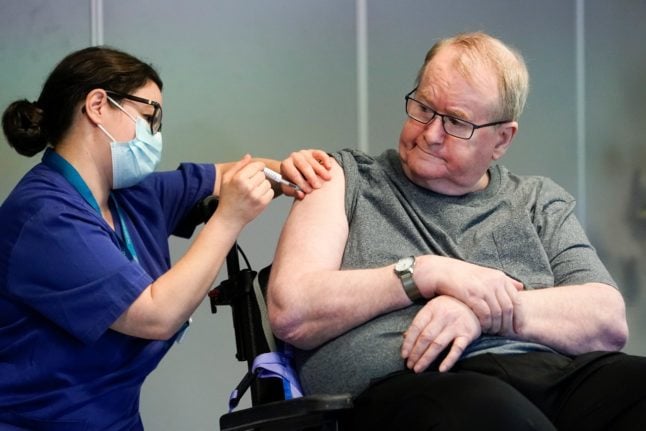Nå er det gjort: Svein (67) fikk Norges første Corona vaksine kl 12 i dag. pic.twitter.com/8sge6yvSRH
— Leif Eide (@eideleif) December 27, 2020
A 67-year old man on Sunday morning became the first person in Norway to receive the Pfizer-BioNTech coronavirus vaccine, saying afterward that he felt like "Armstrong landing on the moon".

Nå er det gjort: Svein (67) fikk Norges første Corona vaksine kl 12 i dag. pic.twitter.com/8sge6yvSRH
— Leif Eide (@eideleif) December 27, 2020
Member comments